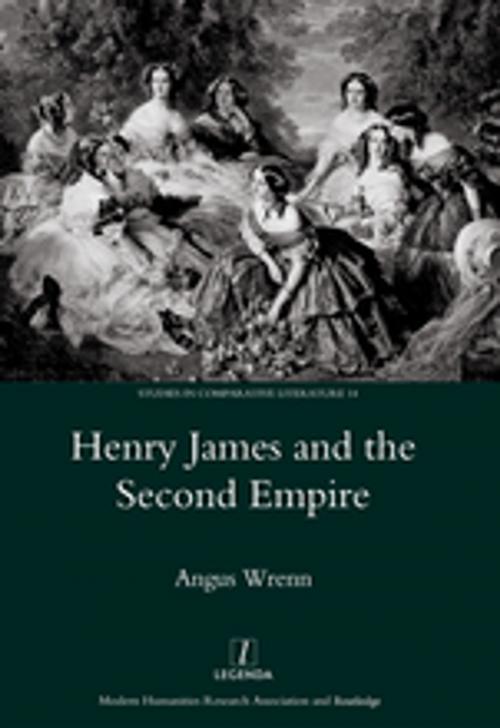| Author: | Angus Wrenn | ISBN: | 9781351194372 |
| Publisher: | Taylor and Francis | Publication: | December 2, 2017 |
| Imprint: | Routledge | Language: | English |
| Author: | Angus Wrenn |
| ISBN: | 9781351194372 |
| Publisher: | Taylor and Francis |
| Publication: | December 2, 2017 |
| Imprint: | Routledge |
| Language: | English |
"Three years spent in France, during the 'Second Empire' of Napoleon III, gave Henry James an early mastery of the French language and its literature. When he settled in Europe, as an adult, it was not in Britain but, briefly yet crucially, in Paris. This study identifies the 'missing link' in the history of James's literary engagement with France, between Balzac, revered throughout his career, and later French writers. It was Second Empire writers who spurred James's own contribution to the novel. While realism courted official displeasure, culminating in the prosecution of Flaubert's Madame Bovary, and closure of the radical Revue de Paris which serialized it, the conservative Revue des Deux Mondes (to which James subscribed) enjoyed imperial approval. James remained indebted to the authors published in its pages - Edmond About, Victor Cherbuliez, and Octave Feuillet - to his close friend Paul Bourget, and to the era's greatest playwright, Alexandre Dumas fils."
"Three years spent in France, during the 'Second Empire' of Napoleon III, gave Henry James an early mastery of the French language and its literature. When he settled in Europe, as an adult, it was not in Britain but, briefly yet crucially, in Paris. This study identifies the 'missing link' in the history of James's literary engagement with France, between Balzac, revered throughout his career, and later French writers. It was Second Empire writers who spurred James's own contribution to the novel. While realism courted official displeasure, culminating in the prosecution of Flaubert's Madame Bovary, and closure of the radical Revue de Paris which serialized it, the conservative Revue des Deux Mondes (to which James subscribed) enjoyed imperial approval. James remained indebted to the authors published in its pages - Edmond About, Victor Cherbuliez, and Octave Feuillet - to his close friend Paul Bourget, and to the era's greatest playwright, Alexandre Dumas fils."















